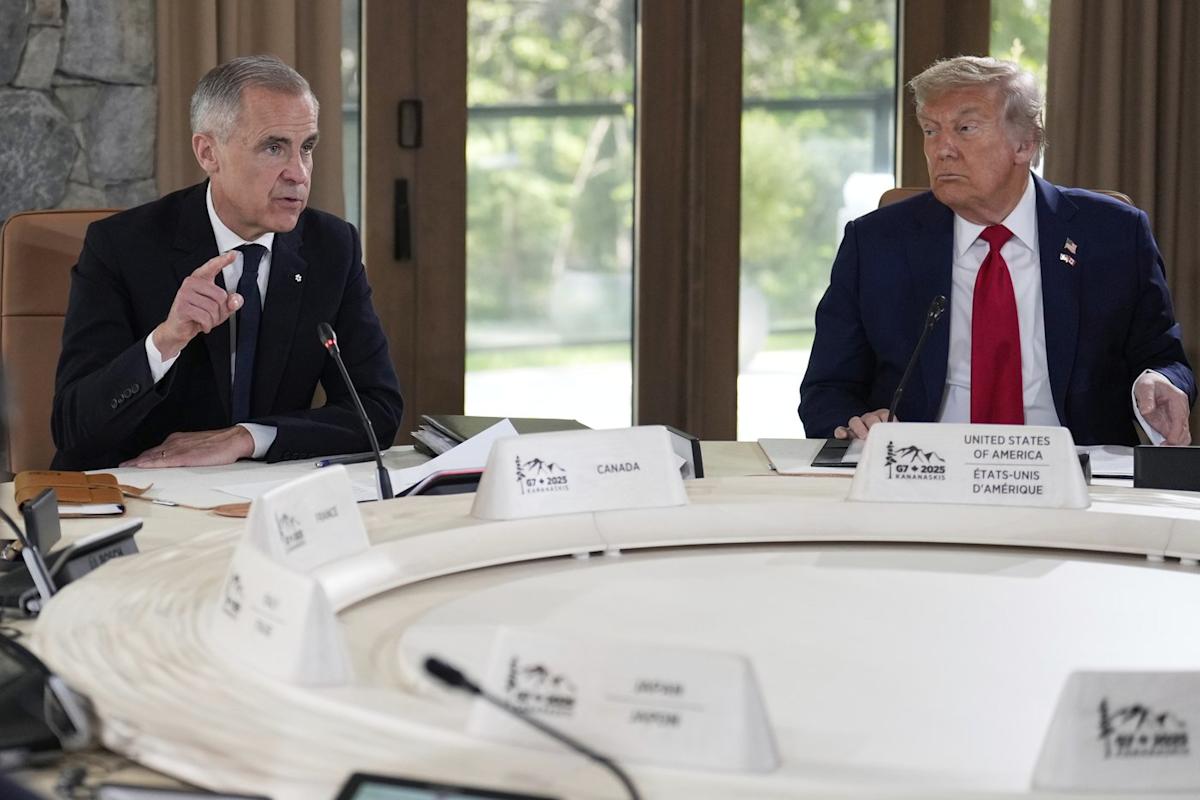OTTAWA — Prime Minister Mark Carney will be meeting with his cabinet and Canada’s premiers to discuss U.S. President Donald Trump’s new threat to slap 35 per cent tariffs on Canadian goods next month.
The Prime Minister’s Office announced there will be a cabinet meeting on Tuesday to discuss ongoing Canada-U.S. trade negotiations. Carney’s office said he also will meet with the premiers on July 22 as they gather for the annual Council of the Federation conference in Huntsville, Ont.
Carney said Thursday his government will “steadfastly” defend workers and businesses. In a late night post on social media, Carney said Canada will continue to work to secure a trade deal with the U.S. by a revised deadline of Aug. 1.
In a letter to Carney on Thursday, Trump threatened to impose 35 per cent tariffs on Canadian goods by that date — evidently setting a new deadline for the trade talks that were supposed to wrap up by July 21.
A White House official said the 35 per cent tariff rate is only expected to be applied to goods already hit with a 25 per cent import tax. This would exempt goods compliant with the Canada-U.S.-Mexico Agreement on trade, called CUSMA, plus energy and potash imports that face a 10 per cent tariff rate.
The official said no final policy paper has been drafted and Trump has not yet made a final decision.
Canada also faces additional U.S. tariffs on steel, aluminum and automobiles, as well as a U.S. plan to introduce tariffs on copper on Aug. 1.
Asked about the tariff threat while leaving the White House Friday morning, Trump told reporters that “it was sent yesterday. They called. I think it was fairly well received.”
A spokeswoman for the Prime Minister’s Office said Carney and Trump did not speak Thursday night. She said that while officials from both countries meet daily as trade talks continue, Thursday’s meeting took place before Trump sent his tariff letter.
Trump’s letter said if Canada works to stop the flow of fentanyl into the United States, he may consider a tariff adjustment. U.S. government data shows the volume of fentanyl seized at the United States’ northern border is minuscule compared to the amounts recovered at the border with Mexico.
Trump declared an emergency at the northern border in order to use the International Economic Emergency Powers Act of 1977, or IEEPA, to slap Canada with economywide tariffs in March. He partially paused the duties a few days later for imports compliant under CUSMA.
It’s not clear whether Trump’s use of IEEPA to hit nearly every nation with duties will survive a looming legal challenge. The United States Court of Appeals for the Federal Circuit is scheduled to hear arguments on July 31 — a day before the tariffs are set to return.
Weiterlesen
